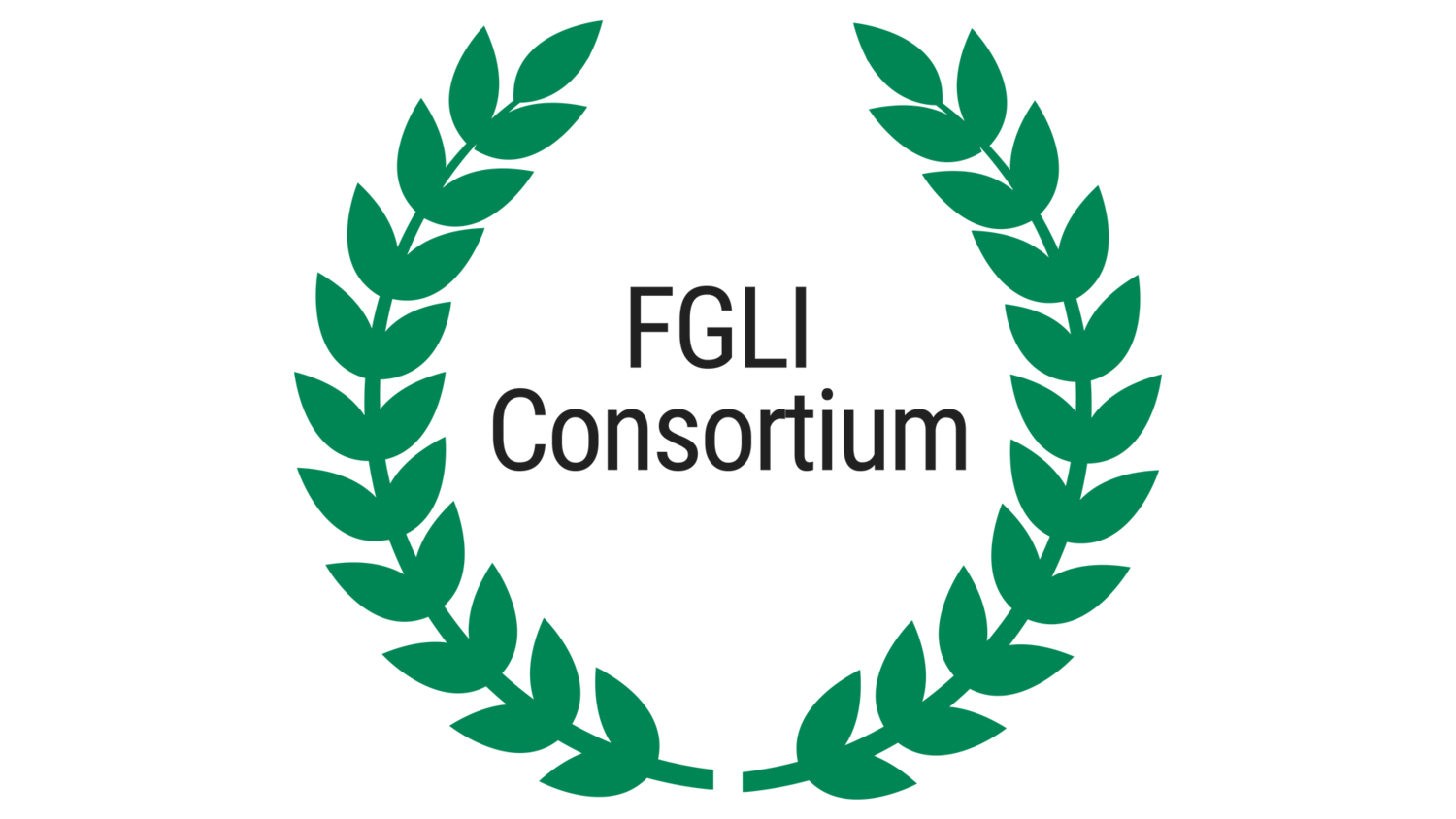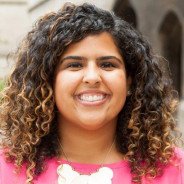Conference concurrent Sessions
Wednesday (10:30 to 11:20 AM) | Wednesday (11:30 AM to 12:45 PM) | Wednesday (2:30 to 3:20 PM) |
Wednesday (3:30 to 4:20 PM) | Thursday (1:30 to 2:45 PM)
Concurrent Session FOUR
WEDNESDAY | 3:30 to 4:20 PM
50 min sessions | the study hotel (1227 E. 60TH ST)
THE UNIVERSITY OF CHICAGO CAMPUS, HYDE PARK
Assessing Your First-gen Student Program: Where and How Do You Begin?
Meeting Room: Drafting 2
Conference Track: Collaborations and Partnerships
Session Abstract:
When building institutional first-generation student programs or initiatives, collecting data, assessing the data and evaluating outcomes are critical components to tracking progress and success. The presenter will discuss how their team developed a benchmark evaluation to measure a new first-gen center's programs, services, participation, awareness of resources, and sense of belonging through the perspectives of the first-generation student population. Implications for future practice and research based upon the results of the evaluation will be discussed.
Maria Erb | Boston University
Executive Director, Boston University Newbury Center
Maria Dykema Erb, M.Ed. is a higher education professional with over three decades of extensive experience in a broad range of areas including DEI; recruitment/admissions, enrollment management, academic advising, retention, and outreach; academic dean’s office and graduate school program administration; and student affairs/life. As a proud first-generation college graduate, Maria holds degrees from the University of New Hampshire and The University of Vermont. Maria is the inaugural Executive Director of the Boston University Newbury Center, a university-wide center for first-generation undergraduate, graduate, and professional students. She is also past chair of the Center for First-generation Student Success Advocacy Group.
Jumpstarting the First Semester: A High Quality, Low Cost, Evidence-Based Alternative to the Summer Bridge
Meeting Room: Drafting 3
Conference Track: Student Success and Student Support
Session Abstract:
Transitioning to the college classroom can be especially challenging for students who identify as first-generation, low-income, and/or nontraditional – especially when that classroom is located within a highly selective college or university. For many of these students, the most common pre-matriculation support intervention, the “summer bridge,” is not an option due to financial and family responsibilities. Even for those who are able to participate, research increasingly demonstrates that the results can be quite mixed and may not justify the often extensive institutional costs. So how do we best support students through the first semester transition? How might we meet students where they are, and offer support interventions that can ease their transition without introducing stigma or amplifying imposter syndrome? In this session, we will introduce participants to the ARC Jumpstart Series, a one-week pre-orientation program for FLI and nontraditional learners that offers a replicable model for a high quality, low cost, limited duration support intervention with proven results.
Sara Remedios Bloom | Columbia University’s School for General Studies
Associate Dean for Student Success Programming
Sara Remedios Bloom is Associate Dean for Student Success Programming at Columbia University's School of General Studies, overseeing academic support initiatives as well as targeted support for special populations. Prior to joining Columbia GS, she worked to restructure the CUNY Pipeline Honors Program, an initiative supporting exceptional FLI students applying to doctoral studies. She holds a PhD in English Literature from The Graduate Center, CUNY.
Partnering with a Robust FLI Alumni Network to Support FLI Alumni & Students
Meeting Room: Studio 1
Conference Track: Collaborations and Partnerships
Session Abstract:
As FGLI student populations continue to grow on campus, administrative programs cannot meet the expanding need. By partnering with first-generation and/or low-income (FLI) alumni, administrators can increase their ability to support FLI students.
Members of the Collaborative of FLI Alumni Networks (CO-FLAN), a group of FLI alumni leaders who have established, or are leading efforts to engage FLI alumni at their alma maters, will share alumni-led initiatives that support FLI students. The session will feature examples of engagement with alumni networks and explore opportunities for collaboration between various campus departments and FLI alumni community leadership. The speakers will discuss: How can FLI alumni help support students' transition to and through graduation, and as they enter the alumni world themselves? What are the common needs of FLI alumni throughout their post-graduation experience? The presenters will review common challenges FLI alumni experience, strengths FLI alumni have in navigating the alumni world, and opportunities for institutions to assist in building community and resources for FLI alumni. The presenters will also provide an overview of strategies for administrators to engage FLI alumni in programming and review tips for setting FLI students up for post-grad success.
Learning Outcome #1: Attendees will be able to identify 2 ways to engage FLI alumni in their campus programming.
Learning Outcome #2: Attendees will be able to identify 3 benefits of engaging FLI alumni in supporting students.
Learning Outcome #3: Attendees will be able to identify at least 1 strategy to prepare FLI graduates for post-grad/alumni challenges at their institution.
Anh LyJordan | CO-FLAN
Founder
Anh LyJordan (she/her/hers) is the founder of CO-FLAN, a national collaborative of FLI alumni networks, and an alumni leader from Cornell University’s First-Gen Alumni Association. A first-generation college graduate from Cornell University and Rutger’s School of Law, Anh founded Accelerate the Climb, an organization to assist first gen graduates transition from college to career through mentoring and networking. She later founded CO-FLAN in an effort to make an exponential impact through connecting existing first-gen alumni leaders. Anh currently works as the director of the Wake County Legal Support Center and a staff attorney at the North Carolina Equal Access to Justice Commission.
Jennifer Telschow | CO-FLAN
Founding Member
Jennifer Telschow (she/her/hers) currently serves as the Founding Co-President of the Stanford First-generation and/or Low-income Alumni Network (FLAN) and as a founding member of CO-FLAN, a national collaborative of FLI alumni networks. As a first-generation college graduate from a low-income (FLI) background, Jennifer’s work focuses on the connection between social class identity, generational status, and mental health of college students. She attended Stanford University, where she was a FLI student organizer and led several initiatives to create supports for FLI students, work that she continues as a leader in the alumni community. Jennifer received her Master's Degree in Counseling from Northwestern University, and currently serves as Assistant Director of the Center for College Student Success at the University of Chicago, where she continues to support FLI students through programming and direct support initiatives.
Chris Sinclair | FLIP National
Executive Director
Chris Sinclair is the Executive Director of FLIP National. "FLIP" is an acronym; it stands for "First-Generation Low-Income Partnership". FLIP National is a national non-profit organization that does advocacy work on behalf of first-generation and/or low-income (FGLI) college students at colleges & universities across the country. Chris Sinclair is a graduate of the School of General Studies at Columbia University, earning his bachelor's degree in Political Science with a special concentration in Business Management. Chris is a founding member of Columbia FLIP, served as its first GS Representative, was a co-chair of Columbia FLIP's Food Insecurity Committee, and played an integral role in the launch & success of several initiatives such as CU Meal Share, the Food Pantry, Share Meals, & the Textbook Lending Library. Chris was also a fellow in the Boston-based Institute for Nonprofit Practice's Community Fellows Program, a program that invests in the next generation of nonprofit & community leaders dedicated to social change. He was one of 27 fellows in the inaugural cohort of fellows from New York City, where he is currently based. Chris is passionate about the movement to create, develop & implement resources, working with college & universities across the country to advocate for policy change at institutions of higher learning, and creating space and building community for FGLI students as a means of maximizing their chances to succeed in changing their circumstances for the better and leaving their mark on the world.
Supporting FLI Students Through Students: Building and Expanding Peer Mentoring Initiatives and Peer-Led Programming
Meeting Room: Drafting 1
Conference Track: Student Success and Student Support
Session Abstract:
How can we build programs to encourage first-generation and/or low-income (FLI) students to support, mentor, and guide each other through the joys and challenges of college? How can we build holistic, individualized support for FLI students and scale programming that meets their needs? Given limitations in staffing and budgets, how can institutions build and expand peer mentoring programs and incentivize student-led programming for FLI students?
Come learn how the Maroon Mentors peer mentoring program for FLI students was created and continues to expand at the University of Chicago! We’ll share how we’ve scaled from a small program serving 40 FLI students to serving 100 students. We’ll discuss how we recruit, train, incentivize, and engage student mentors, mentees, and campus partners in sharing support and resources for FLI students. The presenters will discuss how the program has created leadership opportunities for FLI undergraduate and graduate students, scaled student-led programming and awareness of campus resources, and positively impacted the experiences of FLI college students in building community and feeling a stronger sense of belonging.
Omandra Zamora | The University of Chicago
Assistant Director, Center for College Student Success
Omandra E. Zamora is a licensed social worker and student affairs professional with 10+ years of experience supporting youth from historically marginalized backgrounds, including first-generation, low-income, and students of color. She has worked in a variety of settings, including non-profits, community-based organizations, and schools in New York City and Chicago. She currently serves as Assistant Director of the Center for College Student Success at the University of Chicago, supporting first-generation and/or low-income (FLI) students through programming and direct support initiatives. Omandra holds a BA in Sociology from the University of Chicago and an MSW from CUNY Hunter College.
Talaya LeGette | The University of Chicago
Assistant Dean of Students in the College and Director of the Center for College Student Success
Talaya J. LeGette currently serves as an Assistant Dean of Students in the College and Director of the Center for College Student Success at the University of Chicago. Her personal experiences as a FLI student have influenced her career in higher education, leading her to work at several public and private institutions advocating for the FLI community and providing programming to students to support their academic journeys. Talaya is a three-time alum of Rutgers, The State University of New Jersey, holding an MSW, LSW, and an EdS in Social and Philosophical Foundations of Education.







